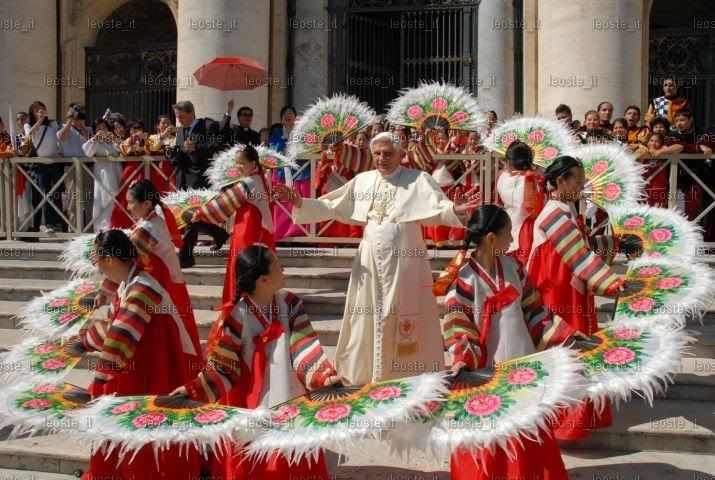I'm reading at the moment into the life of someone with a connection to Swanvale Halt who spent much of her life as a missionary in India and was instrumental in the establishment of the Church of South India in 1947. She had a great concern with encouraging the ministry of native Indians and the independence of the Indian Church from the missionary societies and colonial Churches in which its origins lay. Coming from the Anglican stable, the worship she was used to in the Diocese of Dornakal would of course at first have been straight Book of Common Prayer no matter how incongruous that might seem. But there were para-liturgical celebrations which had more of a local flavour:
There emerged gradually a collection of Telugu Christian lyrics ... These were sung not only at divine worship but also at field work ... The [Easter] vigil was kept decorating every little chapel with beautifully cut out patterns in brightly coloured paper ... Then there was the Christian Home Festival, usually kept around Lady Day, for which a big wooden Cross was erected, outlined with little clay lamps. Each family lit its own little lamp from the Cross and proceeded singing from house to house where they lighted more lamps and received a blessing ... Supremely of course the Harvest Festival held sway ... All through the night village parties converged on the nearest big centre, singing as they came following their brightly coloured cross. The eucharist was celebrated early but the service of Ingathering came at mid-day, attended by all ages and kinds, chickens, ducks, kids and calves ... the climax came when all the produce was carried, pushed or dragged up to be offered, received and blessed ...
This is what we have become fond of calling 'inculturation', the adaptation of European Christian motifs and ceremonies to other cultural circumstances.
It occurs to me that this early- and mid-twentieth century collision of colonial Christianity with indigenous conditions was the Western Church's basic experience of such religious adaptation; it required only a slight and easy mental shift to view the inherited culture of the Church, whether Catholic or Anglican, as requiring a similar sort of 'inculturation' within a context in which traditional religion was theoretically familiar but from which in reality it had become estranged. Hence the jettisoning, from the mid-1960s, of the Book of Common Prayer and the old Roman Missal, plainchant and familiar hymnody, to be replaced by Folk Masses, guitars and puppets. All that stuff Pope Benedict and the folk of the New Liturgical Movement reacted against. The colonial experience is the key to understanding it.
Tuesday, 30 July 2013
Subscribe to:
Post Comments (Atom)


No comments:
Post a Comment